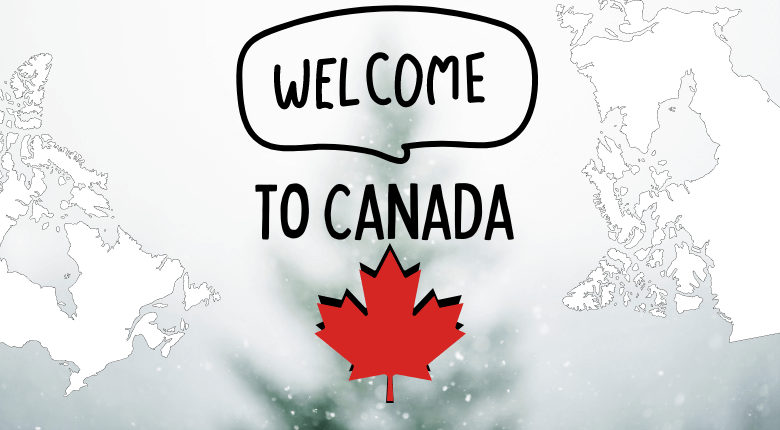If you plan to immigrate to Canada but have low English proficiency, you may face challenges integrating into Canadian society. However, language training programs like English as a Second Language (ESL) and French as a Second Language (FSL) can help you fully develop the language skills necessary to enjoy living in Canada.
Why Are Language Training Programs Important?
Effective communication is essential for finding employment, accessing vital services like healthcare and education, and participating in social activities. Language training programs like ESL and FSL classes teach basic grammar and vocabulary and practical communication skills necessary for daily life in Canada.
Enrolling in these programs has many benefits for newcomers. These programs provide structured learning opportunities that help individuals quickly develop their language skills. Moreover, language training programs often offer individualized support and instructor feedback, which can be invaluable for learners who have questions or need extra help. Additionally, these programs provide opportunities for newcomers to connect with others going through similar experiences, building social connections that can improve mental health and provide valuable networking opportunities.
Language training programs play a crucial role in helping newcomers integrate successfully into their new communities. When people move to a new country, they often face many challenges, including language barriers that hinder them from finding employment, accessing services, and building social connections.
Language training programs provide newcomers with the necessary knowledge and skills to communicate effectively in their new environment. These programs help them to learn the language of their new home country, which is essential for navigating daily life, making friends, and building professional networks.
Moreover, language training programs also offer newcomers the opportunity to learn about different cultural norms and customs. By understanding the nuances of a new culture, newcomers can better adapt to their surroundings and avoid misunderstandings. This is especially important in workplaces where cultural differences can lead to misinterpretations and conflicts.
Having access to language training programs can also have positive economic impacts for both newcomers and society as a whole. Newcomers who can improve their language skills are more likely to find employment and contribute to the economy. This, in turn, helps to reduce the strain on social services and promotes integration within the community.
English Training Programs

What are ESL Programs?
ESL programs are designed explicitly for newcomers whose first language is not English. These programs aim to help individuals develop their English language skills to communicate effectively, participate fully in Canadian society, and succeed in their careers.
What do ESL Classes Cover?
ESL classes cover the basics of grammar, vocabulary, reading, writing, listening, and speaking, along with practical communication skills like ordering food, asking for directions, and making appointments. These programs are available at various proficiency levels, from beginner to advanced.
Enhancing Your English Learning Experience
While language training programs are an essential resource for newcomers, you can do several other things to enhance your language learning experience. Consistent practice is one of the best ways to improve language skills, so try to read books, listen to music, watch TV shows or movies, and engage in conversations with others as frequently as possible. Language immersion is also a powerful tool for language learning, so attend cultural events, join language clubs, and participate in language exchange programs. Finally, setting achievable goals is essential for staying motivated and progressing in language learning.
French Training Programs
What are FSL Programs?
FSL programs can benefit anyone who wants to improve their French language skills, including newcomers who wish to become bilingual.
What do FSL Classes Cover?
FSL classes typically focus on the basics of French grammar, vocabulary, reading, writing, listening, and speaking, with some programs emphasizing conversational French and others focusing more on formal language skills. Like ESL programs, FSL programs are offered at various proficiency levels, so you can choose a program that meets your specific language goals and needs.
Enhancing Your French Learning Experience
In addition to attending FSL classes, consistent practice, language immersion, and setting achievable goals are essential for enhancing your French language learning experience.
Other Language Training Programs
Aside from ESL and FSL classes, other language training programs are available to newcomers in Canada. For instance, The Language Instruction for Newcomers to Canada (LINC) program is another government-funded initiative designed to help newcomers learn English and develop the language skills necessary for daily life in Canada. LINC offers free classes to eligible individuals and includes additional services like child care and transportation to make it easier for learners to attend classes.
Moreover, some community organizations and educational institutions offer language training programs tailored to meet specific needs. For example, English for Academic Purposes (EAP) courses help international students improve their English language proficiency to succeed academically in Canadian universities and colleges. Some programs are also available online, providing an accessible and flexible option for learners.
In conclusion, if you’re a newcomer with low English proficiency moving to Canada, don’t let language barriers hold you back. Enroll in language training programs like ESL and FSL classes to develop the language skills necessary to navigate daily life in Canada. By taking advantage of these resources and strategies, you can become proficient in English or French, make meaningful connections with others, and have a successful and fulfilling life in Canada.
FAQ

What are language training programs?
Language training programs like ESL and FSL classes are designed to help individuals develop their language skills, especially if their first language is not English or French. These programs teach basic grammar, vocabulary, and practical communication skills necessary for daily life in Canada.
Who can enroll in language training programs?
Anyone who wants to improve their English or French language skills can enroll in language training programs, including newcomers with low English proficiency, international students, and even Canadian citizens who want to become bilingual.
What do language training programs cover?
ESL classes cover the basics of grammar, vocabulary, reading, writing, listening, and speaking, along with practical communication skills like ordering food, asking for directions, and making appointments. FSL classes typically focus on the basics of French grammar, vocabulary, reading, writing, listening, and speaking, with some programs emphasizing conversational French and others focusing more on formal language skills.
How long does it take to complete a language training program?
The length of a language training program depends on several factors, including the individual’s current language proficiency, the program’s level of intensity, and the individual’s commitment to consistent practice. However, most programs offer proficiency levels, from beginner to advanced, and individuals can progress at their own pace.
Are there any costs associated with language training programs?
Some language training programs are free, especially those funded by the government, like LINC programs. However, some programs may require payment of tuition fees, which vary depending on the program and institution.
What are the benefits of language training programs?
Language training programs provide structured learning opportunities that help individuals quickly develop their language skills. Moreover, language training programs often offer individualized support and instructor feedback, which can be invaluable for learners who have questions or need extra help. Additionally, these programs provide opportunities for newcomers to connect with others going through similar experiences, building social connections that can improve mental health and provide valuable networking opportunities.
How can I enhance my language learning experience?
Consistent practice is one of the best ways to improve language skills, so try to read books, listen to music, watch TV shows or movies, and engage in conversations with others as frequently as possible. Language immersion is also a powerful tool for language learning, so attend cultural events, join language clubs, and participate in language exchange programs. Finally, setting achievable goals is essential for staying motivated and progressing in language learning.
Are other language training programs besides ESL and FSL classes available?
Yes, there are other language training programs available to newcomers in Canada, including The Language Instruction for Newcomers to Canada (LINC) program, English for Academic Purposes (EAP) courses, and other community-based and online programs.
- Yonge-Dundas Square in Toronto is Now Called “Sankofa Square” - December 17, 2023
- Best Western Brooks’ SureStay Plus debuts in Alberta - December 16, 2023
- Air Canada Arrives in Tulum, Mexico as the First Canadian Airline - December 16, 2023




